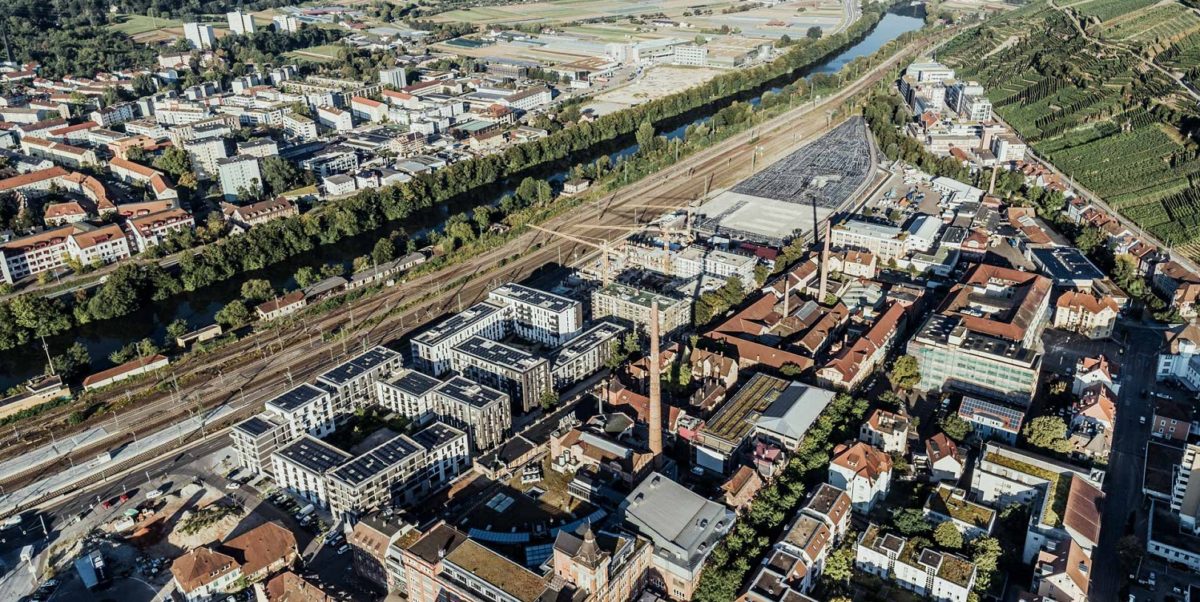From pv magazine Germany
A new climate district is being developed in Esslingen, in the Stuttgart region of Baden-Württemberg, in southern Germany.
The urban development project is being realized on around 100,000 square meters of an old freight station on the Neckar river and its first major, intermediate step has now been achieved with the completion of over 450 apartments and several commercial spaces.
The aim is for residents to generate only one ton of CO2 per person, per year in building-related CO2 emissions for heating, cooling, lighting, domestic hot water, electricity, and individual electromobility. To achieve this, the five apartment blocks are equipped with rooftop PV systems that supply electricity to the households and the charging infrastructure. In addition, excess solar power, together with green power from the grid, will drive a 1 MW electrolyzer that can produce up to 400 kilograms of hydrogen per day. Furthermore, the heat generated by the electrolyzer is used to heat the district so that around 50% of the district's heat requirements are covered by waste heat.
This integration of hydrogen production in a residential area is, so far, unique. The green hydrogen is currently being fed into the gas network but is expected to supply industrial companies in the area via hydrogen lines. Originally it was also planned to convert it back into electricity via a block-type thermal power station and a hydrogen filling station but this was not implemented for cost reasons and due to the expected increase in traffic load. The additional heat supply is provided by a bivalent combined heat and power (CHP) unit which, according to the planner Norbert Fisch – professor for energy and building technology and managing director of the EGS-plan engineering company – is operated with bio-methane.
Fisch and the mayor of Esslingen, Jürgen Zieger, hosted an event on-site and reported, retrospectively, on the ups and downs of the project. The project was funded, with €12 million, by the Federal Ministry of Economics and the Federal Ministry of Research.
This content is protected by copyright and may not be reused. If you want to cooperate with us and would like to reuse some of our content, please contact: editors@pv-magazine.com.



I would not live in a place with hydrogen being messed around with, you only live once